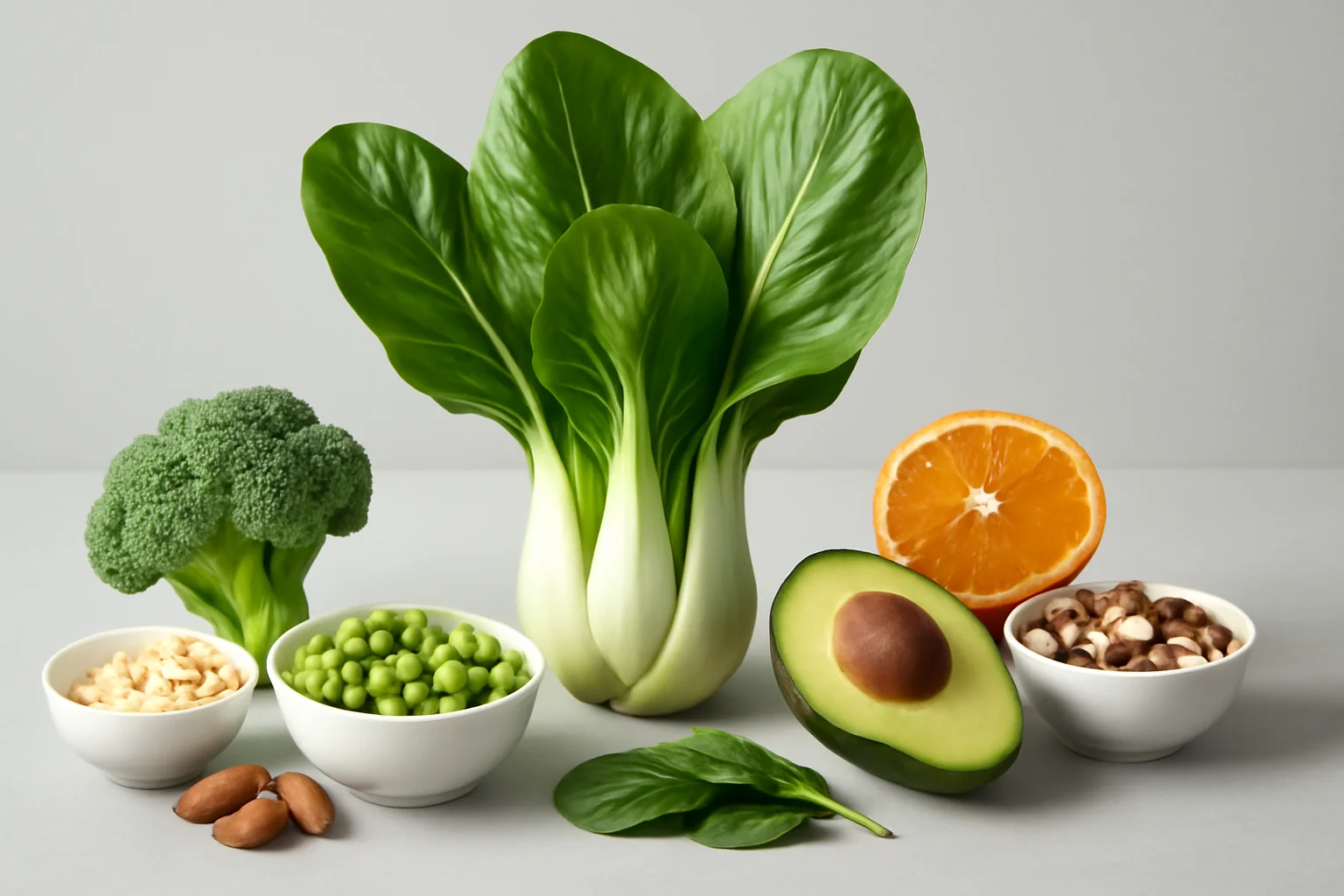
The Beneficial Effects of Pak Choi on Our Health and Nutrition
Pak choi, also known as Chinese cabbage, has become an increasingly popular vegetable in recent years, not only for its delicious taste but also for its numerous health benefits. Pak choi belongs to the cruciferous family, which includes broccoli, cabbage, and radishes. This vegetable is particularly special because it is extremely rich in vitamins, minerals, and antioxidants, which contribute to our health and the quality of our nutrition.
The taste of pak choi is slightly peppery, and its crisp texture adds freshness to salads, soups, and various one-pot dishes. Additionally, due to its low calorie content, it can be an ideal choice for those on a diet. Pak choi is not only nutritious but also a versatile vegetable that can be consumed raw, steamed, or cooked.
Among the benefits of this vegetable, the diversity of nutrients it contains deserves mention, as they contribute to strengthening the immune system and reducing inflammation. Below, we present some of the most important health benefits of pak choi that can help us eat healthier and feel better.
The Nutritional Content of Pak Choi
Looking at the nutritional content of pak choi, we can say that it is extremely rich in vitamins and minerals. Notably, it is high in vitamin C, which plays an important role in the functioning of the immune system. Consuming a serving of pak choi can help meet our daily vitamin C needs, thereby strengthening the body’s defenses.
In addition, pak choi is an excellent source of vitamin K, which is essential for blood clotting and bone health. Vitamin K helps in the proper incorporation of calcium into bone tissue, thus contributing to the maintenance of bone strength. Pak choi is also rich in vitamin A, which is necessary for maintaining vision and skin health.
Regarding the mineral content of pak choi, it is worth mentioning the presence of calcium, potassium, and magnesium. Calcium contributes to the health of bones and teeth, while potassium plays an important role in the functioning of the cardiovascular system. Magnesium is essential for the proper functioning of cells and the health of the nervous system.
The fiber content of pak choi is also noteworthy, aiding digestion and contributing to the health of the intestines. A fiber-rich diet can help prevent constipation and balance the gut flora. Thus, pak choi is not only nutritious but also has digestive benefits.
Pak Choi and Strengthening the Immune System
One of the most significant health benefits of pak choi is its substantial contribution to strengthening the immune system. The antioxidants, vitamins, and minerals found in it all support the body’s defense mechanisms. Vitamin C, which pak choi contains in abundance, helps in the production of white blood cells, which play a key role in the immune response.
Another important compound found in pak choi is glucosinolate, which is characteristic of cruciferous vegetables. These compounds contribute to cancer prevention as they aid detoxification processes and reduce inflammation in the body. Glucosinolates can inhibit the growth of cancer cells, making regular consumption of pak choi particularly recommended for those who wish to protect themselves from diseases naturally.
Moreover, consuming pak choi also helps reduce inflammation. Inflammation is a natural response of the body, but when it becomes chronic, it can lead to various diseases such as heart disease, diabetes, or joint problems. The antioxidants present in pak choi provide protection against free radicals, thus contributing to the reduction of inflammatory processes.
Consuming this vegetable is especially recommended during the winter months when colds and flu are common. Regularly incorporating pak choi into the diet can help prevent illnesses and strengthen the body’s resilience.
The Role of Pak Choi in Cardiovascular Health
The health benefits of pak choi extend to cardiovascular health as well. The vegetable is rich in potassium, which plays an important role in regulating blood pressure. Maintaining proper potassium levels can help reduce the risk of high blood pressure, thereby protecting the heart and blood vessels.
The antioxidant content of pak choi also contributes to heart health. Antioxidants help lower cholesterol levels, thus reducing the risk of heart diseases. Through its anti-inflammatory effects, pak choi also contributes to the protection of heart muscle, potentially reducing the risk of heart attacks and strokes.
Furthermore, the fiber content of pak choi plays an important role in cardiovascular health. Fiber helps lower cholesterol levels, thereby contributing to the prevention of heart diseases. A healthy diet rich in vegetables like pak choi can help prevent cardiovascular issues.
Therefore, regular consumption of pak choi can contribute to maintaining heart health and help reduce the risk of heart diseases. It is worth including it in our diet if we want to live a healthier life and protect our cardiovascular system.
The Digestive Benefits of Pak Choi
The digestive benefits of pak choi are also noteworthy. The vegetable’s high fiber content contributes to the health of the intestines, aiding normal digestion. Fiber plays an important role in maintaining the balance of gut flora, which is essential for proper digestion and nutrient absorption.
Consuming pak choi can also help prevent constipation. The fiber increases stool bulk, facilitating bowel movements and easing the passage of stool. Additionally, the water content in pak choi contributes to proper hydration, which is also important for digestion.
Alongside its digestive benefits, the antioxidant content of the vegetable also positively affects the gut. Antioxidants help reduce inflammation and imbalances in gut flora, thus contributing to the maintenance of a healthy digestive system.
Therefore, pak choi is not only a nutritious vegetable but also plays an important role in healthy eating due to its digestive benefits. It is advisable to consume it regularly to support our gut health and overall well-being.
Note: This article does not constitute medical advice. Always consult your doctor for health issues.

